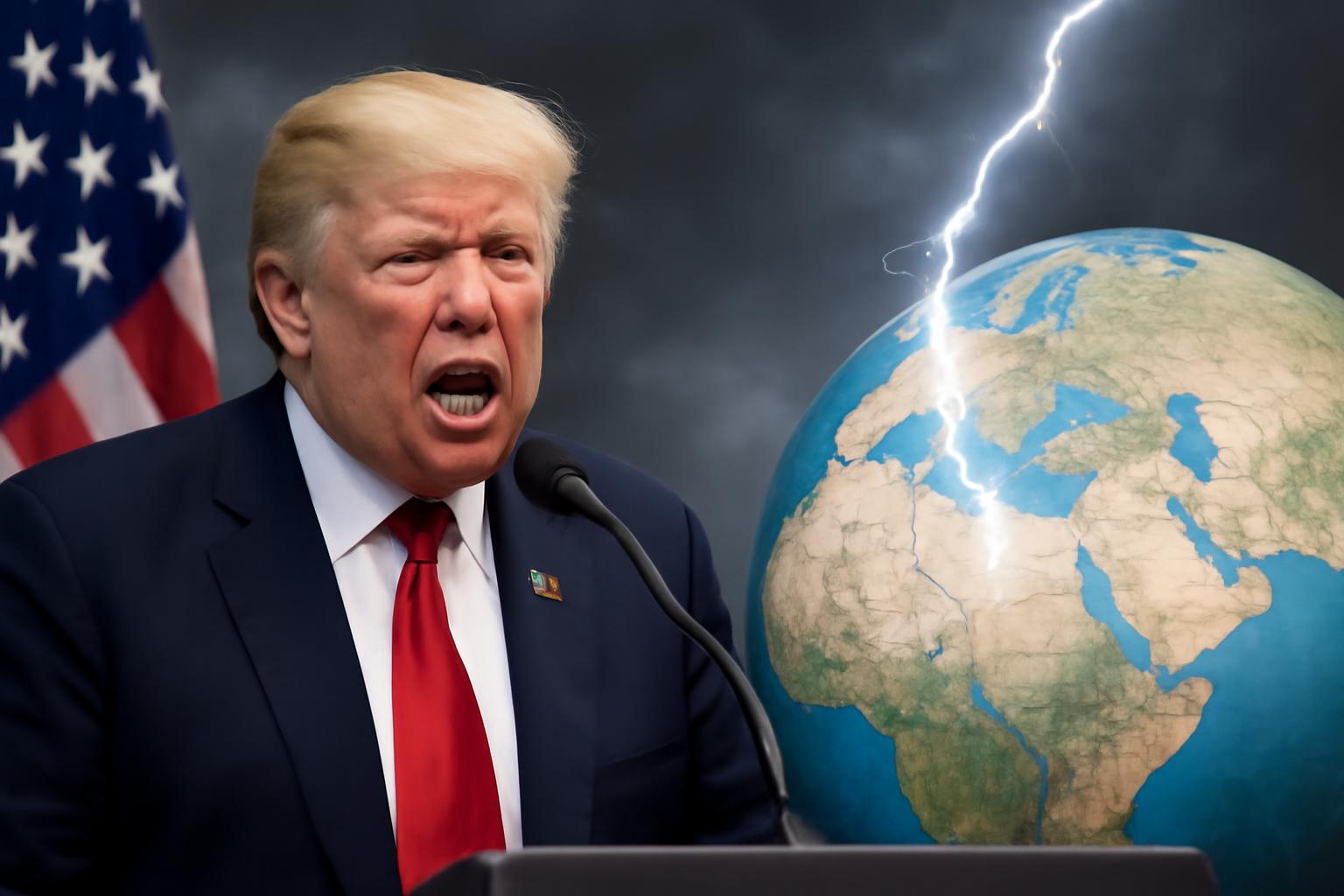President Trump has issued an ultimatum to Russia and its economic partners, threatening steep tariffs—in some cases as high as 100%—unless President Putin shifts course on Ukraine. The threat has been partially enacted: India faces a raised export tariff to the US of 50%. Beijing, for now, is engaged in negotiations, though new duties remain on the table. Diplomatic movement is picking up between Trump and Putin, with a face-to-face encounter reportedly being arranged. However, Ukraine—whose territory and sovereignty are at stake—has been excluded from these critical discussions, even as President Zelenskyy pleads for more European involvement. As these high-level negotiations play out, Russia’s military campaign, including strikes on Ukrainian cities like Kharkiv, continues unabated. Trump voices his disappointment in Putin’s violence, but so far this is mere rhetoric, leaving Russian conduct unchanged. The United States has kept Europe informed of its moves, yet Moscow, Washington, and select markets dominate the process, relegating others, especially Ukraine itself, to the sidelines.
This is an appalling demonstration of the perils of concentrating economic and diplomatic power in the hands of a few. It pains me—truly pains me!—to watch once again the fate of millions hang in the balance of narrow negotiations by powerful men, while the individuals and communities who will bear the consequences of these decisions are shut out of the process.
When state power is used to direct trade, to punish or reward nations by fiat, it inevitably distorts markets and undermines the spontaneous order that free people and voluntary exchange create. The threat of tariffs—25%, 50%, even 100%—does not make anyone free. It empowers autocrats, offering them new tools to bully, coerce, and manipulate. When Mr. Trump or any other leader wields the threat of tariffs, it is not only Russia or China or India who suffer; the citizens of all nations involved, especially the poorest among them, are the ones whose livelihoods are jeopardized. The politicization of trade—so often undertaken in the name of “security” or “justice”—in fact erodes the fabric of civil society and international trust.
Even more dangerous is the exclusion of those whose fate is being decided. That Ukraine is not directly included in talks about its own future is intolerable—the logical conclusion of a worldview that prizes national interests and top-level dealmaking over individual rights and self-determination. The horrors visited upon Ukrainian cities, the suffering of civilians, cannot and must not be horse-traded away between foreign powers. The only just and lasting peace arises from an order in which the affected people themselves play the central role in shaping their destiny.
It is time, and past time, to reject the dangerous belief that concentrated power—be it economic or political—serves us better than the decentralised processes of free people. For every tariff imposed, every diplomatic overture that ignores the will of those most concerned, we stray further from the path of liberty, prosperity, and peace. Let Europe and all free societies take heed: only when we trust the dispersed wisdom of individuals, restrain the ambitions of politicians and bureaucrats, and allow markets to function freely, can we hope for a solution that truly honors the dignity of all who are affected.
